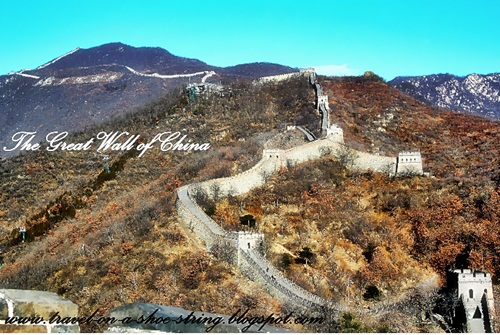HANGZHOU WEST LAKE: Heaven on Earth
I heard a lot of good things about Hangzhou in Eastern China. As an old Chinese saying declares, "There is heaven above, Suzhou and Hangzhou below." For the Chinese, Suzhou and neighboring Hangzhou are the closest things to Heaven on Earth.
I wanted a glimpse of the piece of Heaven on Earth! Human as I am, I tend to be super excited about a new place that I've never been to before. So, I flew from Beijing to Hangzhou via China Eastern Airlines.
Marco Polo even called Hangzhou the most beautiful and magnificent in the world.
This is most evident in the West Lake area--the effective, if not the geographic, center of Hangzhou. Hills embrace the lake on three sides. The city proper lies to the east.
Ancient Chinese people praised the West Lake area as a land of intoxicating beauty.
Su Shi, a poet from the Song Dynasty, likened the lake to Xizi, a Chinese Cleopatra, for its allure.
I gasped in awe when I first saw this scene while walking in Sudi, a 3 kilometer stretch that has the best view of the Famous West Lake.
Intoxicating beauty indeed
Ten (10) of the most beautiful sites include:
- Spring Dawn at Sudi Causeway
- Melting Snow at Broken Bridge
- Sunset Glow over Leifeng Hill
- Lotus in the Breeze at Crooked Courtyard
- Autumn Moon on Calm Lake (a lakeside park at the west end of the Bai Causeway)
- Listening to Orioles Singing in the Willows
- Viewing Fish and Lotus Ponds at Flower Harbor
- Evening Bell at Nanping Hill
- Three Pools Mirroring the Moon
- Twin Peaks Piercing the Clouds
The West Lake is like a shining pearl inlaid on the vast land of China, reputed for beautiful scenery, a multitude of historical sites, brilliant cultural relics, and a profusion of native products. Legend has it that the West Lake was a heavenly jewel fallen to earth. Pragmatists insist that it is a mere lagoon on Hangzhou's western fringe. In any case, West Lake has inspired painters for centuries.
Who would have thought that in ancient times, this place had been a shallow sea gulf before it evolved into a residual lake. The Baidi and Sudi causeways provide access to many parts of the lake. Most of the best known tourist sites lie around and within the lake. With a circumference of 15 kilometers , the lake area itself is easy for the visitor to negotiate.
My Hangzhou adventure still lingers in my mind. Hangzhou does not only have an intoxicating appeal but also very kind people! I met a lot of angels who, despite the language barrier, had help me find my way around and did not expect anything in return. They're complete strangers, not even a Filipino, but the kindness in their hearts shines brightly.



































